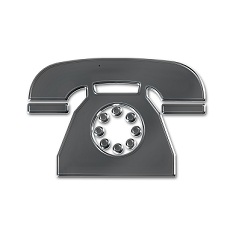O’Brien & Bails isn’t just another court reporting firm. We are made up of individual people who happen to be Michigan court reporters. We thought we would take some time to let you get to know our court reporters.
Yvonne Lantz has been a court reporter since 1972. She has been with O’Brien and Bails since 1992, and is based out of our Lansing, Michigan office.
 How long have you been a court reporter?
How long have you been a court reporter?
Since 1972.
How long have you been with O’Brien and Bails?
Since September 1992.
Have you ever worked in other jobs or fields besides court reporting?
Only the usual high school and college jobs, such as at a drive-in, in the high school office, at a local radio station, and worked for a pharmacy professor while in college.
Where did you grow up?
My first 11 years were in Belleville, Michigan, then we moved to Niles, Michigan
What changes have you seen in the industry since you became a court reporter?
Transcripts were produced by either dictating or typing it yourself. We had to use carbon sets, up to four or five pages at a time, and then manually try to put corrections in the typed document. Computer-aided transcription and realtime have been wonderful advances.
What is the best part of being a court reporter?
Every day is different, especially as a freelancer. I like going to different places, working with different people, and learning something new almost every day.
What is the most challenging part of being a court reporter?
Trying to keep up with people talking at the same time, especially when attorneys are arguing.
As a court reporter, what is your biggest fear?
That I will show up at a job and have my equipment malfunction.
What has been your most challenging deposition?
There have been quite a few, from veterinarians at MSU, physicians in all kinds of specialties, even a young five-year-old boy who wanted to crawl around under the table when being asked questions.
Have you ever had funny things happen to you in a deposition?
There have been quite a few over the years, but I can’t remember them all. One time I was in a burned home with an attorney who was inventorying what was left.
On one case, the attorneys were all very friendly with each other and would joke around a lot. I remember a younger attorney commenting to an older attorney that he looked great, and that he hoped he would look as good when he was the same age. Another attorney piped up, “No, that’s impossible.” When the younger attorney responded, “Why?”, the reply was, “You don’t look that good now!”
Do you have any tips about work/life balance?
Just try to keep the right priorities, but it can be difficult when the office is really busy.
If you would like to schedule a deposition with Yvonne Lantz or one of O’Brien and Bails’ professional court reporters, you can do so by going to our Online Deposition Scheduler.
 Most court reporters spend a large part of their time working independently with the ability to flex some of their schedule. While this lends flexibility that most court reporters enjoy, it also means we are responsible for our own time management with many deadlines to meet. Sometimes meeting all of those deadlines can seem daunting and overwhelming.
Most court reporters spend a large part of their time working independently with the ability to flex some of their schedule. While this lends flexibility that most court reporters enjoy, it also means we are responsible for our own time management with many deadlines to meet. Sometimes meeting all of those deadlines can seem daunting and overwhelming. When I tell someone I’m a court reporter, often I’m asked, “What is that?” It’s difficult to explain what I do in a short sentence. To help describe what I do, I often hold my hands in front of me, as though on a keyboard, and say, “You know, the person with the little machine who sits in front of the judge in court.” And the person I am speaking to often says, “Oh, yes”. But there’s much more I’d like to tell them about what a court reporter does. So if you have ever wondered what a court reporter does, here is my answer.
When I tell someone I’m a court reporter, often I’m asked, “What is that?” It’s difficult to explain what I do in a short sentence. To help describe what I do, I often hold my hands in front of me, as though on a keyboard, and say, “You know, the person with the little machine who sits in front of the judge in court.” And the person I am speaking to often says, “Oh, yes”. But there’s much more I’d like to tell them about what a court reporter does. So if you have ever wondered what a court reporter does, here is my answer.
 How many times have you called to hire a court reporter for a deposition only to find out the court reporter you called was not available on the date you requested? Most likely your next step was to call another reporter, and another, and another until you found one that was available.
How many times have you called to hire a court reporter for a deposition only to find out the court reporter you called was not available on the date you requested? Most likely your next step was to call another reporter, and another, and another until you found one that was available.